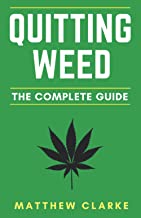Cannabis Disorder
Cannabis use disorder (CUD), also known as cannabis addiction or marijuana addiction, is defined in the fifth revision of the Diagnostic and Statistical Manual of Mental Disorders (DSM-5) and ICD-10 as the continued use of cannabis despite clinically significant impairment.
Cluster Number:
Wiki Number: W033
Diagnosis: Cannabis (Marijuana) Use Disorder
US Patients:
World Patients :
Sex Ratio:
Age Onset:
Brain Area:
Symptoms: develops tolerance, requiring increased use, 15% of daily users become addicted
Progression: withdrawal, tolerance, use of time, cravings;1/3 of users transition to schizophrenia
Causes:
Medications: None with consistent, positive results; 9% of users become dependent.
Therapies:
Youtube Video: Cannabis Use Disorder
Amazon or Library Book: Quitting Weed
Click the book to link or order from Amazon.

